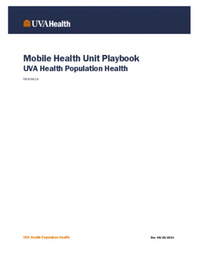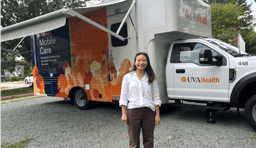My Research Journey: From Biology to Economics
As I am wrapping up my work with school-based health centers this summer, I have begun to reflect on what I have learned and accomplished during the short 6-weeks.
I began 'conducting' formal research in high school when I joined a cardiology lab as a summer student. I learned various laboratory techniques from DNA PCR, to RNA extraction from cell culture and animal tissue, to mouse maintenance and cardiac surgery. In college, I joined another basic sciences lab, this time a neuroimmunology lab. I learned how to develop and edit protocols, present data and results, mentor other students in the lab, and so much more.
All of this to say, my research training up until Laidlaw was in a field entirely unrelated to economics research. Little of my tactile lab bench skills were applicable to my work on school-based health centers in which I was working exclusively with raw data. In the lab, we produce data through experiments. We search for novel cellular interactions, for new phenotypes, for something that builds on prior knowledge, for something with the potential to improve the health of patients. My research training drilled into me the importance of progressing the body of scientific knowledge. In contrast, in health economics research, we are finding and verifying relationships that already exist through data that, for the most part, already exist.
My research this summer was focused on the impact of school-based health centers on student health and academic achievement. Instead of working on a lab bench with a bustling group of post-docs, I worked quietly on my laptop in the silence of the library. I learned how to use the statistical software STATA, and I combed through data set after data set. With lab work, each experiment feels like a step towards progressing the body of scientific knowledge, but with my work on school-based health centers, I didn't feel that sense of immediate 'validation' of my work.
Economics research for me was a solitary exercise. Collaboration was through quick and efficient meetings, short emails, and thoughtful zoom calls. I had to learn how to find purpose and drive for my work without a body of scientific knowledge to contribute to. Amid the data points and numbers, I took a step back and realized that I am researching adolescent health, something so core to our experience as humans.
Something my research mentor in the neuroimmunology lab has always said is that "Patients are ALWAYS smarter." In other words, a patient understands their symptoms far more than someone else will, thus as researchers of humans and biology, we must validate and support their experience. In other words, we research the root of the physical human experience. Something that I did not learn to appreciate until I conducted economics research.
Researching in a field that was unfamiliar, but not any less interesting, to me changed my perspective on what it means to conduct research, on what it means to produce knowledge. Research to me is no longer just an act of progressing a field and our understanding of niche topics, but a means to understand what the human experience truly is, whether that be through the lens of healthcare and policy or the cells in our bodies.




Please sign in
If you are a registered user on Laidlaw Scholars Network, please sign in